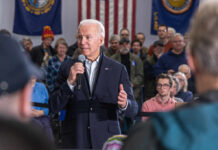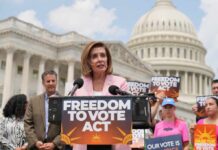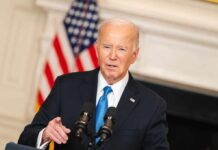
The Biden administration recently gave up on its efforts to ban menthol cigarettes to avoid angering Black voters.
In October 2023, the Food and Drug Administration (FDA) sought to ban menthol cigarettes and flavored cigars because of concerns that such tobacco products are harming America’s youth, according to ZeroHedge.
Biden Admin Abandons Plan To Ban Menthol Cigarettes To Avoid 'Angering Black Voters' https://t.co/OBXND7u5D9
— zerohedge (@zerohedge) April 26, 2024
The FDA estimated that there were nearly 19 million menthol cigarette smokers ages 12 and over in the U.S. in 2018, with “particularly high rates of use by youth, young adults, and African Americans and other racial and ethnic groups.”
In December 2023, in what several individuals called a “blacklash,” officials in the White House began taking additional time to review their plan to ban menthol cigarettes despite warnings discovered in science.
“The federal agency estimates a ban on the flavor additive could prevent 300,000 to 650,000 smoking deaths over several decades. They claim most of the preventable deaths would be among minority groups and Americans of African descent, who disproportionately smoke menthol cigarettes,” the FDA said.
As of April 2024, just months before a presidential election as President Joe Biden’s poll numbers further sink underwater, the Wall Street Journal reported that the Biden administration is backtracking its plans to ban menthol cigarettes.
This comes after the White House weighed the potential public health benefits of banning the product against the political risk of angering Black voters, which have been largely loyal to the Democratic Party in past elections.
ZeroHedge noted that several community Black leaders opposed the measure, arguing that a ban would expand the illicit market for cigarettes and prompt police to attack Black smokers.
In a statement, Health and Human Services (HHS) Secretary Xavier Becerra gave no timeline for issuing the ban, saying the administration would need more time to consider feedback, such as that from civil rights organizations.
“It’s clear that there are still more conversations to have, and that will take significantly more time,” Becerra said.

































